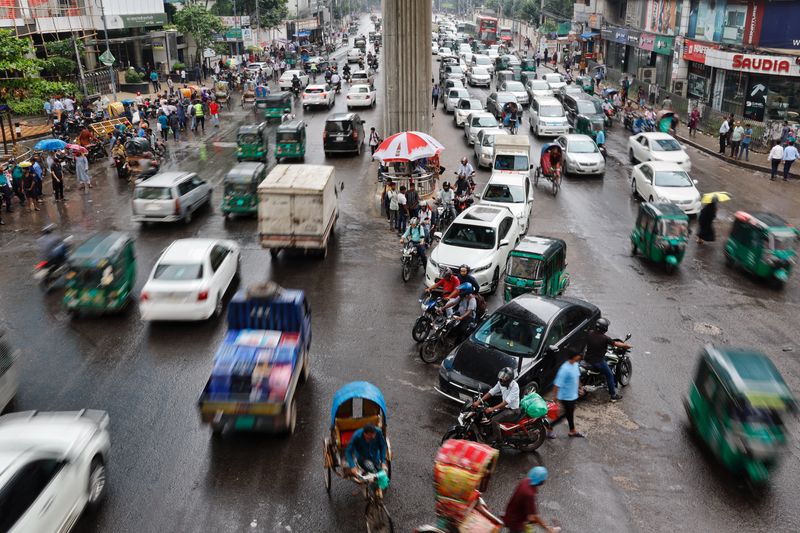WASHINGTON (Reuters) - The International Monetary Fund on Monday said Bangladesh's quick formation of an interim government has helped stabilize the country, and that the country's new authorities have helped address the economy even as challenges remain.
The IMF staff's review, following a Sept. 24-30 staff visit, also backed Bangladesh authorities' efforts to make economic adjustments in the face of those challenges such as slowing economic activity, double-digit inflation and pressure on foreign exchange reserves, the IMF said in a statement.
"The timely formation of an interim government has helped stabilize political and security conditions, fostering a gradual return to normalcy in the economy," they wrote.
IMF's review comes after Nobel laureate Muhammad Yunus took office last month following the ousting of Prime Minister Sheikh Hasina amid deadly protests.
A U.S. delegation also pledged economic support following a visit to the country this month.

IMF officials said they remained committed to supporting Bangladesh and its people, and would work with authorities on their reforms to shore up its economic agenda.
"We support the authorities' efforts to initiate policy adjustments, including continued monetary tightening and rationalizing non-priority capital spending, in response to these challenging circumstances," the IMF staff said, adding that declining tax revenues and spending pressures also loom.